Energy
-
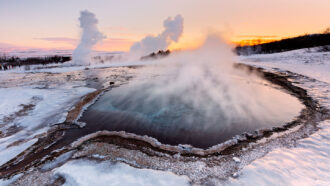 Physics
PhysicsExplainer: What are the different states of matter?
Most people know solids, liquids and gases — but what about the four other states of matter?
-
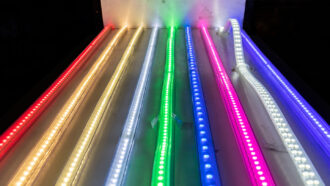 Tech
TechScientists Say: LED
LEDs, or light-emitting diodes, light up TV screens, traffic lights and many other devices used in daily life.
-
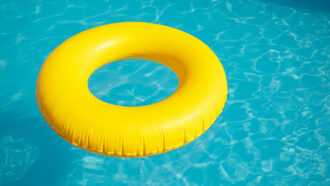 Tech
TechTeens’ new tech would send alerts to reduce preventable deaths
A trio of teen innovations created devices that can speed up the response time to pool accidents, overheating in cars and combat-related injuries.
By Anna Gibbs -
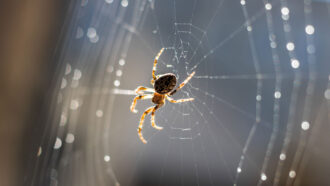 Animals
AnimalsOrb-weaving spiders use their webs like external eardrums
Scientists discover that orb-weaving spiders listen with their legs, detecting sound vibrations that travel through their silken webs.
-
 Chemistry
ChemistryCellulose may keep ice cream from turning gritty in your freezer
Adding nanocrystals extracted from wood avoids the growth of ice crystals, keeping your treat smooth and creamy.
By Anna Gibbs -
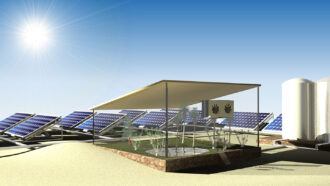 Tech
TechThis sun-powered system delivers energy as it pulls water from the air
The device not only produces electricity but also harvests water for drinking or crops. It could be especially useful in remote and dry parts of the world.
By Laura Allen -
 Materials Science
Materials ScienceNew cloth cools you when you’re hot, warms you when you’re cold
Scientists 3-D printed the new fabric, which has even more tricks up its sleeve — such as conducting electricity and resisting radio waves.
-
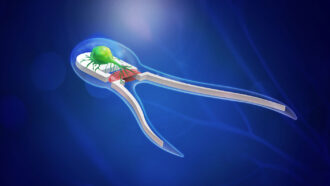 Tech
TechRobots made of cells blur the line between creature and machine
Scientists are using living cells and tissue as building blocks to make robots. These new machines challenge ideas about robots and life itself.
-
 Physics
PhysicsExplainer: How do mass and weight differ?
Learn why these terms aren’t the same and which to use where. And should you report your results in kilograms? Pounds? If in doubt, try using newtons.
By Trisha Muro -
 Environment
EnvironmentClothes dryers may be a major source of airborne microplastics
Scientists thought washing machines were a leading contributor of microplastics. Now it appears dryers may be an even bigger problem.
-
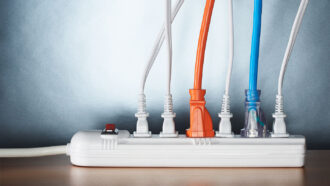 Physics
PhysicsScientists Say: Voltage
Voltage is a measure of how much electricity is available to power devices.
-
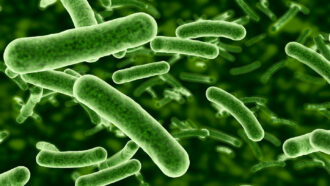 Microbes
MicrobesGenes point to how some bacteria can gobble up electricity
A new study shows how some microbes absorb and release electrons — a trait that may point to new fuels or ways to store energy.